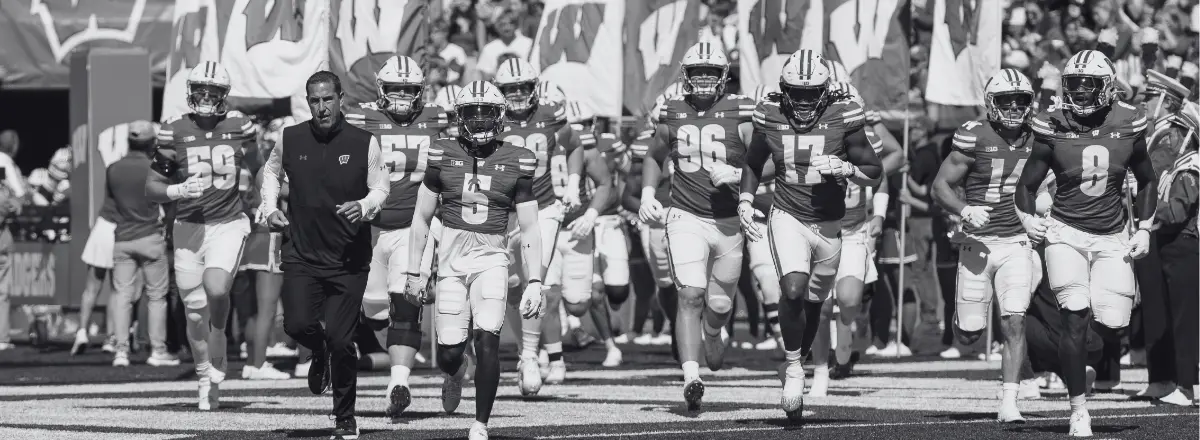Though legal sports betting throughout Wisconsin has now been live for over a year, the state is still facing a slew of questions about the future of gambling. Some of these issues are more basic. For instance, everyone wants to know whether Wisconsin sports betting will branch out to online wagering or if the state plans to stick indefinitely with the brick-and-mortar model.
Other issues, however, aren't so simple.
Now that Wisconsin legal sports betting has a year-plus of returns to work off, officials and lawmakers are starting to understand what works, what doesn't, how to drum up revenue, how to spend profits, etc. And entering 2023, another focus is beginning to take shape: People throughout Wisconsin want stricter sports betting policies enacted.
More specifically, these calls for more rigid gaming laws reference the marketing sector. Even though Wisconsin sports betting is limited to in-person wagering at the moment, it hasn't slowed the number of money casinos, and companies are spending on advertisements throughout the region. The time and cash invested in maximizing the reach of promotional programs is so steep that many in the area have deemed it predatory.
Why do proponents of a narrower sports betting market feel this way? And what does it mean for the future of sports betting in Wisconsin? Moreover, is this a topic of debate unique to America's Dairyland? Or is this a common dilemma facing legal sports betting throughout the United States in general?
Let's see if we can shed some light on a matter that's becoming increasingly urgent in Wisconsin—and perhaps elsewhere.
Has Wisconsin Sports Betting Actually Become a Predatory Practice?
To be certain, concerned lawmakers and residents don't necessarily consider gambling a predatory practice. Many have noted that people can responsibly bet on sports, gamble at casinos, and responsibly play the state lottery. Their issue is with the gaming companies and casinos and how these entities set up and expand their business models.
Writing for Star News in Wisconsin, Ben Koch elaborated on the problem at hand:
"In the paper last week, there was a happily titled article ‘Wisconsin Homeowners Receive Holiday Gift from the Lottery’. It was a light, fluffy article that celebrated the many benefits we all receive from this wonderful program. Isn’t it great that ‘strong sales’ helped to continue to help Wisconsin taxpayers? Ultimately, the answer is no. Gambling is a major issue in Wisconsin and an addictive pattern that can ruin lives. Lottery tickets have been aggressively marketed and sold in low-income communities in our state, a known tactic to increase sales that pull needed money out of people’s pockets. Many of these people are not homeowners and therefore do not benefit from the tax break.
"In the end, when the negatives of lotteries are brought up, the comeback is always, ‘people will gamble anyways, so let’s collect the tax revenue.’ Although that is partially true, from the $2 crossword scratch-off games to sports betting, March Madness brackets, and raffles at local fundraisers, gambling is all around us, and many of us play. But that also ignores that the Wisconsin Lottery is Wisconsin Residents (us) sponsoring predatory marketing practices to try to increase sales of lottery tickets with full knowledge of the personal and community costs of gambling. As a State, we actively promote buying lottery tickets, intentionally targeting low-income, susceptible communities and selling the premise as ‘good’ for all. The lottery costs our communities and us, celebrates people spending money needed elsewhere, and increases the need for other social services. Somehow I don’t think the advertised $200 property tax credit holiday gift is an overall gain for me."
Koch closes his op-ed by stating that he's not "trying to end gambling." He wants the Wisconsin State lottery, which oversees casino and sports betting in the state, to cap marketing resources while ensuring the lion's share of advertisements aren't being disseminated to lower-income neighborhoods and exploiting their socioeconomic situation.
Wisconsin is Not the Only State Facing Questions About Predatory Marketing
The sentiment expressed by Koch—and many others inside the state—is not unique to Wisconsin.
Concerns over predatory marketing have surfaced in just about every region of the USA. California voters rejected both of their 2022 sports betting bills in part because both sides were given carte blanche to spend whatever they wanted on advertising. Other states, meanwhile, have continued to sit out the legal sports betting craze entirely because they fear they won't be able to adequately monitor how casinos and retail sportsbooks attempt to drum up business.
On top of that, this is a common concern among states with legal sports betting already in place. In the last year, places like Illinois, Ohio, Pennsylvania, New York, and many others have broached the topic of abusive marketing practices and how best to limit them.
What's the Next Move for Sports Betting in Wisconsin?
Given the level of angst in Wisconsin over predatory marketing, a good amount of sports betting experts believe they will be among the first states to try limiting the number of money casinos and retail bookmakers can spend while also enforcing certain geographical restrictions. And while that's good news—not to mention eminently reasonable—it doesn't portend anything good for the future of online sports betting in Wisconsin.
America's Dairyland has no plans to branch out from in-person sports betting. And if they're apprehensive about how retail sportsbooks will handle their advertising practices, they don't have much incentive to expand their gambling laws.
Wisconsinites looking to place wagers from their computers or mobile devices will have to continue exploring alternatives. Fortunately, many of the sites from our reviews of the top online sportsbooks permit almost anyone in the USA to register for an account.
Failing that, the only option people in Wisconsin have to wait for online legal sports betting to come. And at this rate, that looks like it'll take a few more years—at least.
Take a look at this list of the top online sportsbooks so you can decide which one to use for all of your sports betting needs in 2023:
-
EXCLUSIVE BONUS
 50% bonus up to $250Play Now
50% bonus up to $250Play NowT&C apply, 18+, Play responsibly
-
EXCLUSIVE BONUS
 125% up to $1,250Play Now
125% up to $1,250Play NowT&C apply, 18+, Play responsibly
-
EXCLUSIVE BONUS
 225% up to $3,625Play Now
225% up to $3,625Play NowT&C apply, 18+, Play responsibly
-
 50% bonus up to $250Play Now
50% bonus up to $250Play NowT&C apply, 18+, Play responsibly
-
 125% up to $2,500Play Now
125% up to $2,500Play NowT&C apply, 18+, Play responsibly












